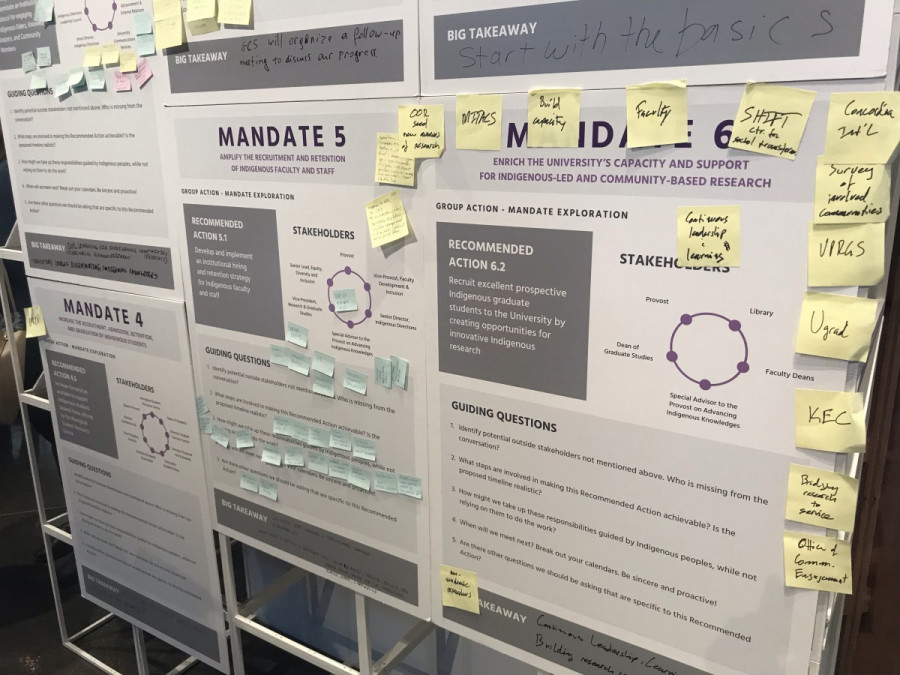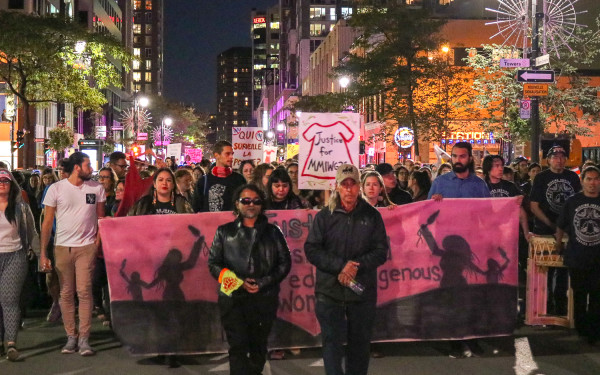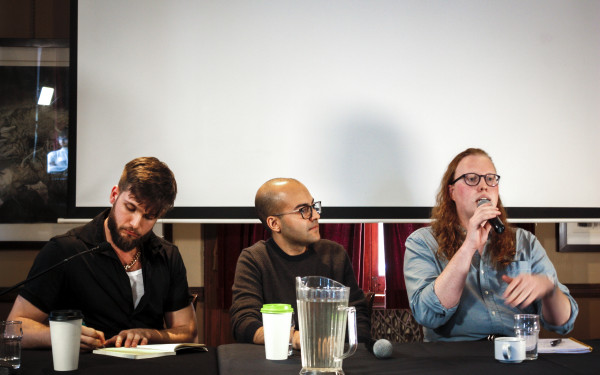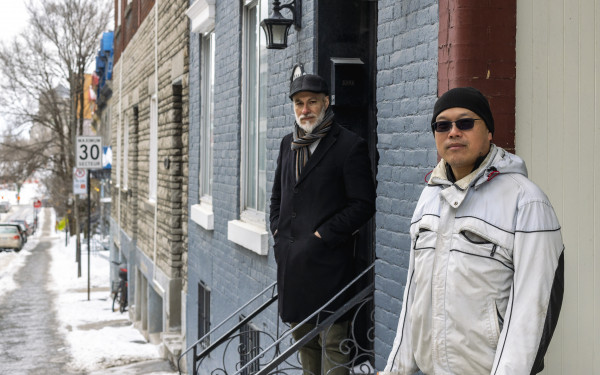Concordia Launches Action Plan to Indigenize and Decolonize University
Hiring and Funding Among Priorities Outlined in Action Plan
Concordia’s Indigenous Directions Leadership Group has just launched a 39 point action plan created in part as a response to the Truth and Reconciliation Commission calls to action.
The action plan presented Thursday outlines what the IDLG, with the support of the university administration, will be undertaking in the coming years to better serve Indigenous students and faculty at Concordia.
“Concordia’s mission is to be welcoming, engaged, and committed to innovation and excellence in education,” said Heather Igloliorte, special advisor to the provost on advancing Indigenous knowledges. “We cannot achieve this mission without Indigenous peoples, without Indigenous presence, and without Indigenous excellence.”
“Together, we can move forward today and set a path for ourselves for our future success,” she continued.
The plan recommends decolonizing and anti-racist Indigenous workshops for faculty members, administration, and students. The creation of an Indigenous cultural space and naming or renaming spaces and buildings to highlight Indigenous presence and history are also among the 39 recommendations.
Hiring and funding make up a large chunk of the recommendations in the action plan. This includes the hiring of a senior director of Indigenous directions, who would report to the provost. This will also entail the hiring of a permanent staff to ensure support for the work done by the IDLG.
In addition, the action plan suggests hiring a high-level faculty advisor to develop and promote Indigenous research as well as the creation of a position for a full-time Indigenous community outreach coordinator.

The IDLG also recognizes the university’s history in colonialism, referring to the Grey Nuns and Jesuits, and their connections to residential schools, and founding figures such as the evangelist Sir George Williams.
They recommend the creation of funding for doctoral and postdoctoral research for students in First Peoples’ studies, history, communications, or a related discipline.
The plan pushes for six main mandates: governance and community participation, curriculum and pedagogy, institutional environment, Indigenous students, Indigenous faculty and staff, and Indigenous research.
“We set out a number of achievable concrete actions under key areas that have the potential to transform governance, students, faculty and staff, our cultural climate, community engagement, curriculum and pedagogy and research,” said Igloliorte.
These mandates came to fruition at the end of a consultation process with Indigenous students and faculty, as well as community members outside of Concordia.
The recommendations aim to provide solutions to issues like a lack of funding for Indigenous student resources, and are to act as a guide “to move the university towards a more equitable and inclusive future.”
“This is a day for people to be thankful to have a new opportunity to begin something fresh, which undoubtedly should have begun a long time ago,” said Graham Carr, Provost and Vice-President, Academic at Concordia.
While Carr acknowledged that the action plan is in part a response to the calls to action of the TRC, he emphasized it’s also about taking action to better serve the Indigenous community.
“It’s not to be able to wake up one morning and say that the university ticked all the boxes of the recommendations that we made,” he said. “Instead, the focus should really be on the action part.”
As far as the 39 recommendations outlined in the action plan go, many have already been implemented, such as a territorial acknowledgements, the creation of Indigenous Curriculum and Pedagogy Advisor Donna Goodleaf’s position, and a university-wide protocol for engaging with Indigenous elders and community members.







